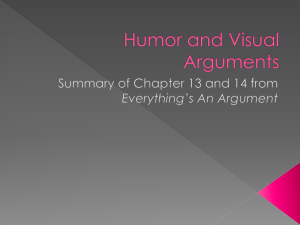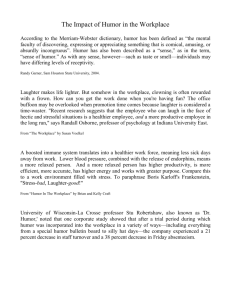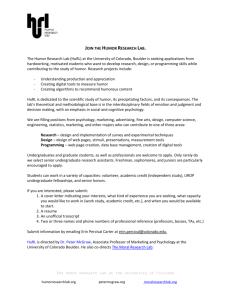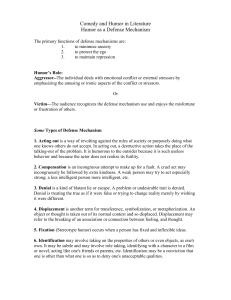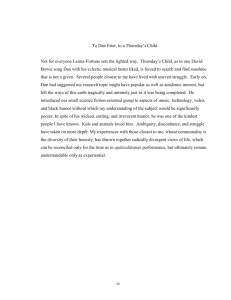here
advertisement
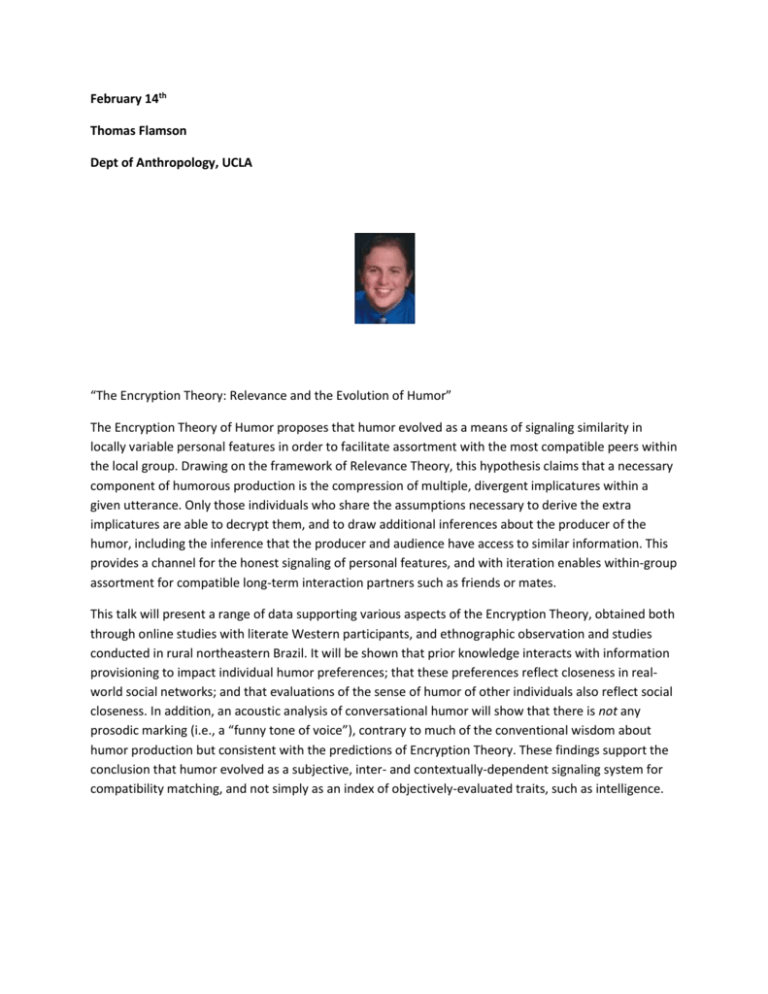
February 14th Thomas Flamson Dept of Anthropology, UCLA “The Encryption Theory: Relevance and the Evolution of Humor” The Encryption Theory of Humor proposes that humor evolved as a means of signaling similarity in locally variable personal features in order to facilitate assortment with the most compatible peers within the local group. Drawing on the framework of Relevance Theory, this hypothesis claims that a necessary component of humorous production is the compression of multiple, divergent implicatures within a given utterance. Only those individuals who share the assumptions necessary to derive the extra implicatures are able to decrypt them, and to draw additional inferences about the producer of the humor, including the inference that the producer and audience have access to similar information. This provides a channel for the honest signaling of personal features, and with iteration enables within-group assortment for compatible long-term interaction partners such as friends or mates. This talk will present a range of data supporting various aspects of the Encryption Theory, obtained both through online studies with literate Western participants, and ethnographic observation and studies conducted in rural northeastern Brazil. It will be shown that prior knowledge interacts with information provisioning to impact individual humor preferences; that these preferences reflect closeness in realworld social networks; and that evaluations of the sense of humor of other individuals also reflect social closeness. In addition, an acoustic analysis of conversational humor will show that there is not any prosodic marking (i.e., a “funny tone of voice”), contrary to much of the conventional wisdom about humor production but consistent with the predictions of Encryption Theory. These findings support the conclusion that humor evolved as a subjective, inter- and contextually-dependent signaling system for compatibility matching, and not simply as an index of objectively-evaluated traits, such as intelligence.
